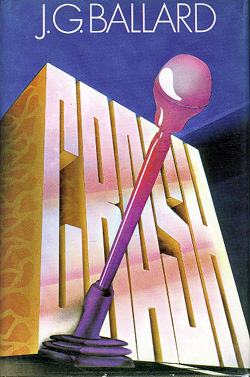
Crash is a novel by English author J. G. Ballard, first published in 1973 with cover designed by Bill Botten. It follows a group of car-crash fetishists who become sexually aroused by staging and participating in car accidents, inspired by the famous crashes of celebrities.
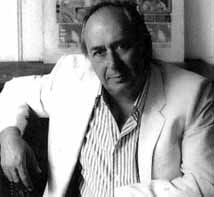
James Graham Ballard was an English novelist and short story writer, satirist and essayist known for psychologically provocative works of fiction that explore the relations between human psychology, technology, sex and mass media. Ballard first became associated with New Wave science fiction for post-apocalyptic novels such as The Drowned World (1962), but later courted political controversy with the short-story collection The Atrocity Exhibition (1970), which includes the story "Why I Want to Fuck Ronald Reagan" (1968) and the novel Crash (1973), a story about car-crash fetishists.
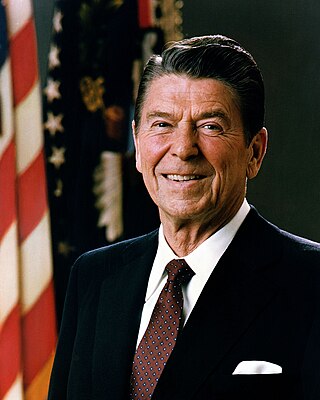
Ronald Wilson Reagan was an American politician and actor who served as the 40th president of the United States from 1981 to 1989. A member of the Republican Party, his presidency constituted the Reagan era, and he is considered one of the most prominent conservative figures in American history.

The 1984 United States presidential election was the 50th quadrennial presidential election held on Tuesday, November 6, 1984. Incumbent Republican president Ronald Reagan defeated Democratic former vice president Walter Mondale in a landslide victory.
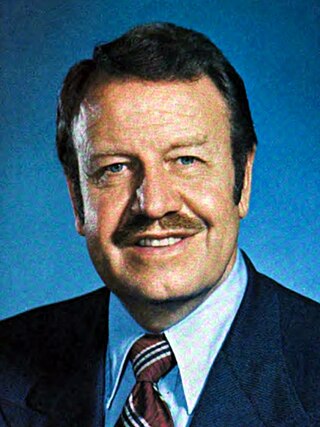
Jesse Marvin Unruh, also known as Big Daddy Unruh, was an American politician who served as speaker of the California State Assembly and as the California State Treasurer.

The Atrocity Exhibition is an experimental novel of linked stories or "condensed novels" by British writer J. G. Ballard.

The Crystal World is a science fiction novel by English author J. G. Ballard, published in 1966. The novel tells the story of a physician trying to make his way deep into the jungle to a secluded leprosy treatment facility. While trying to make it to his destination, his chaotic path leads him to try to come to terms with an apocalyptic phenomenon in the jungle that crystallises everything it touches.

Vermilion Sands is a collection of science fiction short stories by British writer J. G. Ballard, first published in 1971. All the stories are set in an imaginary vacation resort called Vermilion Sands which suggests, among other places, Palm Springs in southern California. The characters are generally the wealthy and disaffected, or people who make a living off them, as well as parasites of various kinds.

The Sixth Party System is the era in United States politics following the Fifth Party System. As with any periodization, opinions differ on when the Sixth Party System may have begun, with suggested dates ranging from the late 1960s to the Republican Revolution of 1994. Nonetheless, there is agreement among scholars that the Sixth Party System features strong division between the Democratic and Republican parties, which are rooted in socioeconomic class, cultural, religious, educational and racial issues, and debates over the proper role of government.

From January 21 to June 3, 1980, voters of the Republican Party chose its nominee for president in the 1980 United States presidential election. Retired Hollywood actor and two-term California governor Ronald Reagan was selected as the nominee through a series of primary elections and caucuses culminating in the Republican National Convention held from July 14 to July 17, 1980, in Detroit, Michigan.
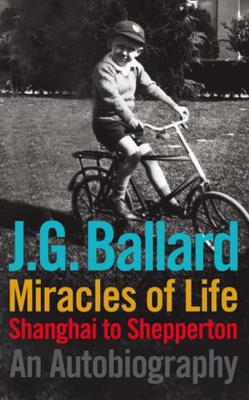
Miracles of Life is an autobiography written by British writer J. G. Ballard and published in 2008.

From March 12 to June 11, 1968, voters of the Republican Party chose its nominee for president in the 1968 United States presidential election. Former vice president Richard Nixon was selected as the nominee through a series of primary elections and caucuses culminating in the 1968 Republican National Convention held from August 5 to August 8, 1968, in Miami Beach, Florida.
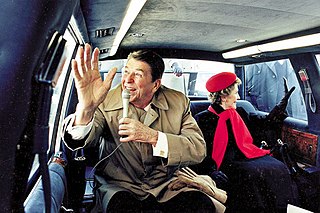
This is the electoral history of Ronald Reagan. Reagan, a Republican, served as the 40th president of the United States (1981–1989) and earlier as the 33rd governor of California (1967–1975). At 69 years, 349 days of age at the time of his first inauguration, Reagan was the oldest person to assume the presidency in the nation's history, until Donald Trump was inaugurated in 2017 at the age of 70 years, 220 days. In 1984, Reagan won re-election at the age of 73 years, 274 days, and was the oldest person to win a US presidential election until Joe Biden won the 2020 United States presidential election at the age of 77 years, 349 days.
The Complete Short Stories of J. G. Ballard: Volume 2 is a short story collection by J. G. Ballard, published in 2006.

In 1980, Ronald Reagan and George H. W. Bush were elected president and vice president of the United States. They defeated the incumbent Democratic President Jimmy Carter and Vice President Walter Mondale.

Martin Anderson was an American academic, economist, author, policy analyst, and adviser to U.S. politicians and presidents, including Ronald Reagan and Richard Nixon. In the Nixon administration, Anderson was credited with helping to end the military draft and creating the all-volunteer armed forces. Under Reagan, Anderson helped draft the administration’s original economic program that became known as “Reaganomics.” A political conservative and a strong proponent of free-market capitalism, he was influenced by libertarianism and opposed government regulations that limited individual freedom.

The 1968 presidential campaign of Richard Nixon, the 36th vice president of the United States, began when Nixon, the Republican nominee of 1960, formally announced his candidacy, following a year's preparation and five years' political reorganization after defeats in the 1960 presidential election and the 1962 California gubernatorial election.
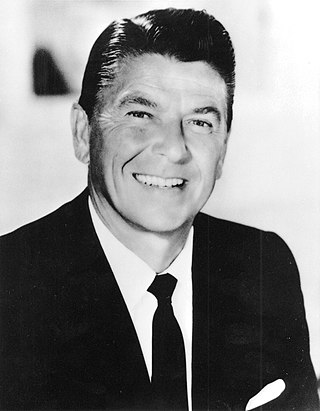
Ronald Reagan was the 33rd governor of California for two terms, the first beginning in 1967 and the second in 1971. He left office in 1975, declining to run for a third term. Robert Finch, Edwin Reinecke and John L. Harmer served as lieutenant governors over the course of his governorship.
Frederick Clifton White Sr., was an American political consultant and campaign manager for candidates of the Republican Party, the New York Conservative Party, and some foreign clients. He is best remembered as the moving force behind the Draft Goldwater Committee from 1961 to 1964, which secured a majority of delegates to nominate U.S. Senator Barry M. Goldwater of Arizona as the presidential candidate of the Republican Party.

















